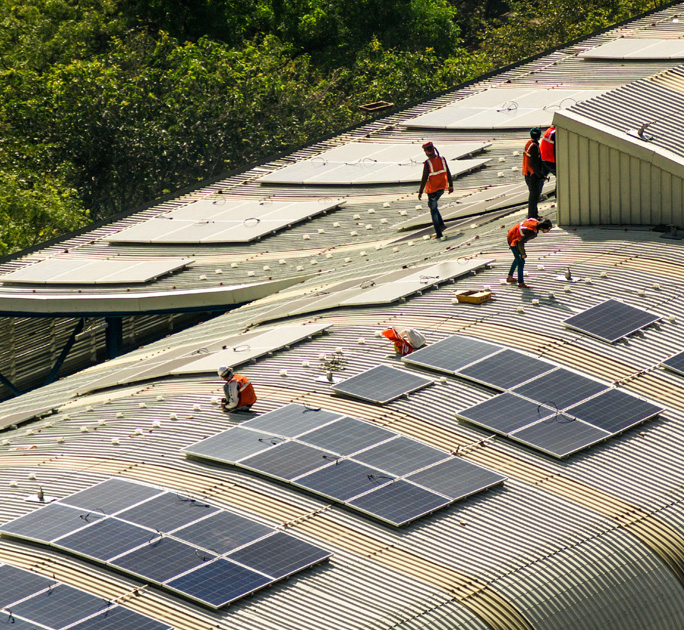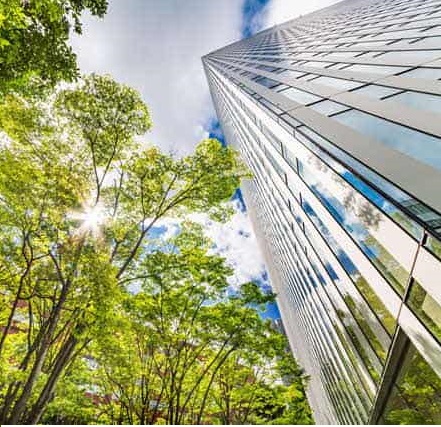The Imperative of Fighting Climate Change
Responsible banking will play a key role in tackling climate change along with sustainable financing.

Climate change is occurring at much higher rates than anticipated, and its effects are evident worldwide, across all industries. Every organisation — banks included — must play its part to tackle climate change and its impact. Building a sustainable world for tomorrow requires taking urgent action today.
Being one of the largest capital allocators in the world, banks have a huge responsibility. As a purpose-driven bank, DBS believes in employing its capital not only for the benefit of our shareholders, but the greater community as well.
Responsible banking – allocating capital to promote sustainability
One way to create the most impact is by allocating capital in a manner that also incentivises sustainability initiatives.
As Yulanda Chung, DBS’ Head of Sustainability, Institutional Banking Group, said,
“Capital allocation is a powerful tool we can use to move the needle toward achieving sustainability goals.”
For instance, DBS recently financed a S$178 million sustainability-linked loan to Link Real Estate Investment Trust (Link REIT), Asia’s largest REIT. Under the loan terms, Link REIT will be eligible for interest savings if it maintains its listing on global sustainability indices and hits milestones based on the independent Global Real Estate Sustainability Benchmark.
“As we pursue our medium-term goals outlined in Vision 2025 — and to create value for our stakeholders and the communities we serve — we are pleased to ensure the integration of sustainability best practices into our daily operations by introducing our very first sustainability-linked loan with our key relationship bank, DBS.”
George Hongchoy, Link REIT’s Chief Executive Officer, said.
“Link’s maiden sustainability-linked loan underscores the growing shift towards responsible financing in the region. We believe financing solutions with features that incentivise sustainable development enable corporates to generate long-term value while contributing to the United Nations Sustainable Development Goals. We look forward to forging more such collaborations as we collectively meet tomorrow’s sustainability challenges.”
Chew Chong Lim, Managing Director & Global Head of Real Estate, Institutional Banking, DBS, said.
Green financing a growing sector
This green loan to Link REIT is an example of responsible banking — one of DBS’ three sustainability pillars that also includes responsible business practices and creating social impact.
Just as top-down government regulations are important in ensuring society moves toward a sustainable future, so are bottom-up free market incentives. This is why green financing — channelling financing toward pro-sustainability areas — is now worth at least S$44 trillion worldwide.
Over the past few years, DBS has signed green loans with companies like Wilmar International, City Developments, CapitaLand, Allianz Real Estate, and Siemens. In 2019, DBS provided S$5 billion of sustainable financing transactions — a 60% yearly growth. The bank is also committed to financing at least S$10 billion in green loans and S$10 billion in renewable financing by 2024.
Sustainable financing is essential to fund the United Nations Sustainable Development Goals (SDGs). There is an estimated S$3.5 trillion funding gap that needs to be closed to meet the agreed SDGs by 2030. DBS’ contribution is only a small percentage of the total, but if all the banks in the world make similar commitments, the bank believes the gap can be bridged together.
Leveraging strategic partnerships
It is clear that no individual or organisation can do this alone. To this end, DBS collaborates with various organisations to leverage each organisation’s individual strengths — and create a greater impact as a team than as separate units.
For instance, DBS partnered with Halycron Agri, the world’s leading rubber franchise, to create HeveaConnect — a digital marketplace for sustainably processed rubber. This project is quickly gaining traction, with multiple other rubber companies adopting its HEVEAPRO sustainable framework. This guarantees premium quality products from a trusted supply chain partner produced in a socially and environmentally responsible way.
DBS has also collaborated with organisations such as Waste4Change to roll out a responsible waste management initiative in Indonesia and United Way Mumbai to launch a mission to restore the city’s depleting mangroves.
These are just a few examples among many. The goal is to continually and proactively identify, support, and integrate social enterprises into DBS operations in order to scale and multiply the positive impact on society.
DBS’ guideposts – The UN’s Sustainable Development Goals
As a member of the United Nations Global Compact, the world’s largest corporate sustainability initiative, DBS is committed to helping society progress toward achieving the UN’s SDGs, focusing on six SDGs in particular:
- Gender equality
- Affordable and clean energy
- Decent work and economic growth
- Industry, innovation, and infrastructure
- Responsible consumption and production
- Climate action
Collective action starts with individual efforts
The road ahead will not be smooth or easy. Achieving the SDGs by 2030 will require massive cooperation and a shift in organisational thinking. All collective action must first start with individual efforts.
DBS is committed to doing its part and is always looking for ways to do better. We invite other organisations to do the same. If each of us accepts our responsibility, together, we can create a sustainable future.



